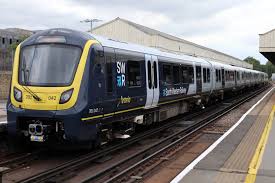Latest Developments in South Western Railway Services

Introduction
South Western Railway (SWR) is a vital component of the UK’s transport network, connecting London with the South West region. With millions of passengers relying on its services each year, the performance and reliability of SWR have significant implications for commuters, tourists, and local economies. Recent developments aim to enhance passenger experience, address challenges, and ensure the sustainability of services.
Recent Service Enhancements
As part of ongoing efforts to improve operational efficiency, South Western Railway announced a new timetable effective from December 2023. This initiative is aimed at providing more frequent services during peak hours, particularly on routes serving busy suburban areas. Key improvements include an increase in trains running every 30 minutes between Waterloo and towns like Guildford and Woking. This enhanced connectivity is expected to facilitate better access for commuters and support local businesses.
Investment in Infrastructure
A significant investment has been allocated for infrastructure upgrades across the network. This includes the completion of platform extensions at several stations to accommodate longer trains. Furthermore, SWR has also initiated electrification projects, which are expected to reduce journey times and lower carbon emissions. The first phase of the electrification project is set to be completed by mid-2024, connecting London with major destinations such as Exeter and Weymouth.
Passenger Feedback and Safety Measures
SWR has been actively listening to passenger feedback, implementing changes based on concerns regarding service reliability and cleanliness on trains. This includes increasing the frequency of onboard cleaning and introducing more staff to assist passengers at key stations. With the resurgence of travel post-pandemic, safety measures remain a top priority, including regular assessments of air quality and stringent protocols in place to manage occupancy levels on trains.
Conclusion
The recent announcements from South Western Railway reflect a commitment to improving the travel experience for its passengers while also addressing environmental concerns. The measures set to be implemented in the coming months are anticipated to enhance service reliability and efficiency. As SWR navigates through these changes, it is crucial for passengers to stay informed about new schedules and routes. Future forecasts suggest a positive shift in service quality, making train travel a more viable and attractive option for those journeying through the South West region.









